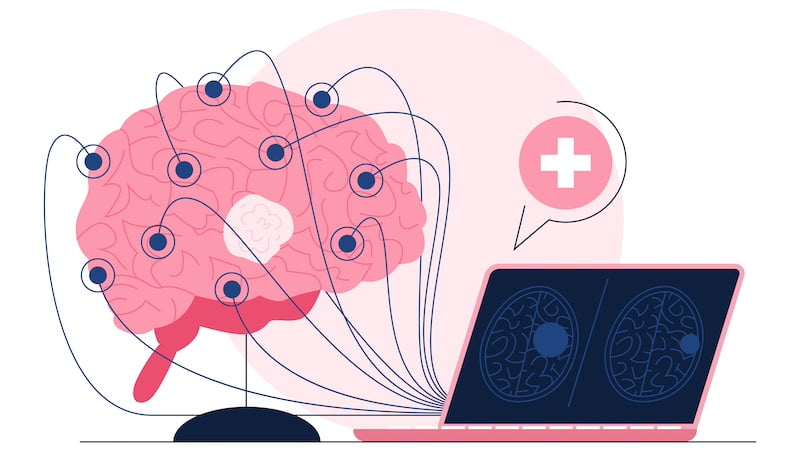
According to the Parkinson's Foundation, more than ten million people worldwide live with Parkinson's disease. But the diagnostic methods have so far been extremely limited. Could AI help here and enable early diagnosis of Parkinson's? A new study has come to this conclusion.
In the USA alone, around a million people live with Parkinson's disease. According to the Parkinson's Foundation, this number will increase to around 1.2 million by 2030. Every year in the USA alone, around 90,000 people are diagnosed with Parkinson's.
More than ten million people worldwide live with Parkinson's disease, only around four percent of whom are diagnosed before the age of 50.
Early diagnoses of Parkinson's disease are still very rare. But the use of AI systems could soon change that, as the results of a new study show.
How can AI help diagnose Parkinson's?
An earlier diagnosis of the disease could offer those affected a better quality of life. And this is exactly where researchers from Great Britain, Denmark and Australia started.
They have developed an AI system that can analyze the electrical activity of the brain. They previously measured these brain waves using electroencephalograms (EEGs).
If the AI system analyzes the brain wave data from the electroencephalograms, it can detect Parkinson's disease with high accuracy, according to the study results.
Artificial intelligence can also detect very early signs of Parkinson's disease. This has not been possible so far because diagnoses have so far only been based on the judgment of doctors based on symptoms that have already occurred and medical tests.
More quality of life for people suffering from Parkinson’s
The researchers have published their study results in a paper in the scientific online database ScienceDirect. It says the results may help “create an essential technology for efficient Parkinson’s diagnosis.” This could improve both patient care and quality of life.
Parkinson's disease is a neurological disease. Over time, nerve cells in the brain become so damaged that the patient's motor control is reduced.
An early diagnosis could therefore enable those affected to receive better care. Because the analysis of EEG scans can determine not only the presence of the disease, but also its severity.
The accuracy of the AI model is crucial. The researchers were able to achieve accuracy rates of 99.83 percent and 95.79 percent in two tests.
“The proposed model has promising potential as a valuable and lasting aid to experts and clinicians in the diagnosis of Parkinson's disease,” the paper says. The AI system could also be used to support electrocardiograms or electromyography.
Also interesting:
Source: https://www.basicthinking.de/blog/2024/04/23/studie-ki-parkinson-hirnstroeme/


